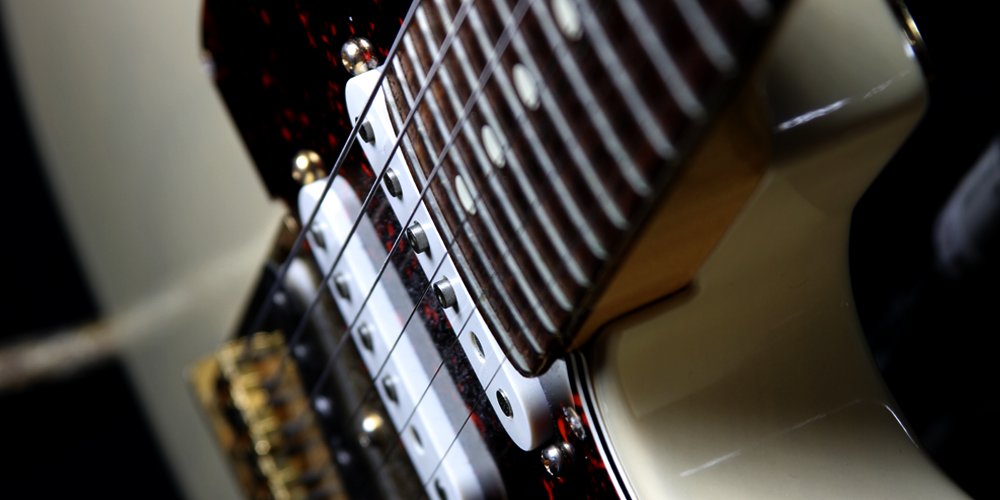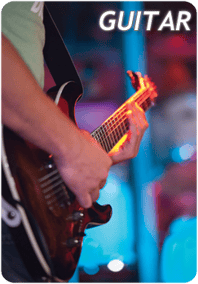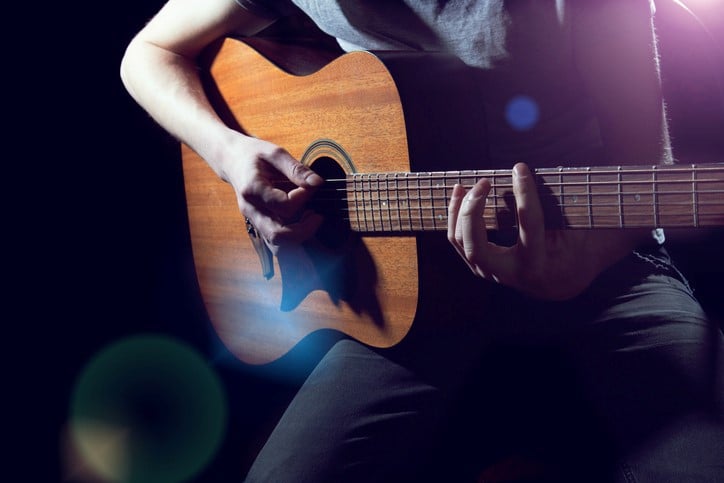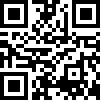| Course Number |
Course Title |
Credits |
| GTR420 |
|
Scales IV
Annotated example solos are used to demonstrate the application of scales and arpeggios, which are taught within the context of corresponding Performance class selections. Students will analyze the styles of various guitarists, including Django Reinhardt, Joe Pass, Pat Martino, Steve Morse, Mike Stern and Pat Metheny.
Prerequisite: Scales III. |
1 |
| GTR430 |
|
Reading IV
Students in Reading IV will be exposed to real world sight reading situations. Along with studying syncopated rhythms, the course introduces a variety of chart styles including big band charts, studio session charts, guitar ensemble charts, and fake book style charts.
Prerequisite: Reading III. |
1 |
| GTR440 |
|
Acoustic Guitar Techniques IV
Here students will learn pieces from the Baroque and Romantic periods, usage of harmonics and altered tunings, and will continue with Sor and Carcassi studies.
Prerequisite: Acoustic Guitar Techniques III. |
1 |
| GTR940 |
|
Group Lesson IV
Students receive one half hour of group instruction every other week to address areas of technique or theory for which they require assistance.
Prerequisite: Group Lesson III. |
0.5 |
| INT400 |
|
Performance IV
This course is an interdisciplinary performance class based on standard advanced level repertoire for R&B, Blues, Rock and Pop styles. Students perform on stage weekly in a live interactive ensemble format with voice and rhythm section instrumentation that emulates professional gigging scenarios. The emphasis is on execution of melody, rhythm, chords, form, and improvisation. Materials such as sheet music, charts, play along tracks, lyrics, video tutorials are provided via Canvas Learning Management System. |
4 |
| INT401 |
|
Studio Performance IV
This course is an interdisciplinary studio performance class based on standard advanced level repertoire for R&B, Blues, Rock and Pop styles. Students perform in the recording studio weekly in an interactive ensemble format with voice and rhythm section instrumentation that emulates professional recording sessions. The emphasis is on execution of melody, rhythm, chords, form, and improvisation. Materials such as sheet music, charts, play along tracks, lyrics, video tutorials are provided via Canvas Learning Management System. |
4 |
| INT445 |
|
Music Theory Essentials IV
This course explores advanced harmonic and melodic techniques used in modern music. Melodic writing, harmonization, voice-leading and arranging are covered. Students will compose and arrange music using the techniques discussed, and will apply these ideas on the keyboard.
Prerequisite: Music Theory Essentials III. |
3 |
| INT495 |
|
Music Business
Presenting concepts and practices that cover several areas of the constantly changing music industry. Students will learn about such things as booking, agency contacts, performing rights organizations, copyright and trademark, record label anatomy, artist management agreements, tax information, resume and self-promotion. |
1 |
| Required Credit Hours |
15.5 |



 Learn from Tosin Abasi of Animals As Leaders—also an AIMM alumnus.
Learn from Tosin Abasi of Animals As Leaders—also an AIMM alumnus.






